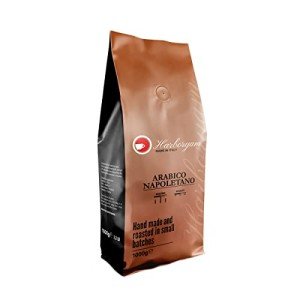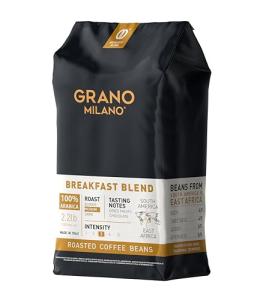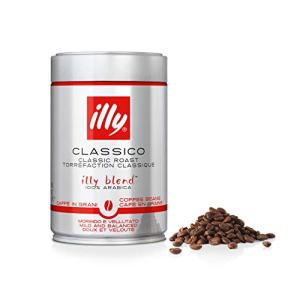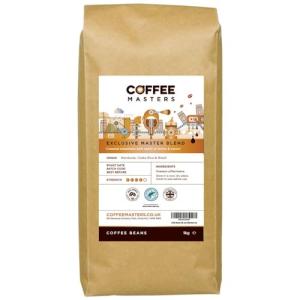Colombia is renowned globally for producing some of the finest coffee beans in the world. With its unique climate, elevation, and rich volcanic soils, the country boasts an unparalleled coffee-growing environment. Among the coffee varieties cultivated in Colombia, organic Colombian coffee beans stand out, both for their exquisite taste and their alignment with fair trade principles. This guide delves into the benefits, processes, and significance of opting for organic Colombian coffee beans under fair trade regulations.
Understanding Organic Coffee
Organic coffee cultivation adheres to stringent agricultural practices that exclude synthetic chemicals, pesticides, and fertilizers. Instead, organic farming relies on natural methods to foster plant growth, including the use of compost, cover crops, and traditional pest management techniques. Colombian organic coffee beans are typically grown at high altitudes, where the climate promotes flavor development and ensures a richer, fuller-bodied coffee experience.
Benefits of Organic Coffee
-
Environmental Sustainability: Organic coffee farming supports biodiversity and protects the environment by minimizing chemical runoff and promoting soil health.
-
Health Considerations: Organic coffee is often considered safer for consumption due to the absence of synthetic chemicals, appealing to health-conscious consumers.
-
Flavor Quality: Many coffee connoisseurs note a more complex flavor profile in organic coffee due to the natural growing methods and optimal growing conditions.
The Importance of Fair Trade
Fair trade is a social movement that seeks to provide equitable trading conditions and promote sustainability for producers in developing countries. For Colombian coffee farmers, fair trade certification guarantees that they receive a fair price for their labor and product, which is crucial for their livelihoods.
Key Principles of Fair Trade
-
Fair Pricing: Fair trade ensures that farmers receive prices that cover their production costs and provide a livable wage.
-
Sustainable Practices: It promotes environmentally friendly farming techniques, encouraging organic practices among farmers.
-
Empowerment: Fair trade supports community development by enabling farmers to invest in education, healthcare, and infrastructure.
-
Transparency: Fair trade organizations prioritize direct communication between producers and consumers, enhancing trust and accountability in the supply chain.
The Role of Fair Trade in Colombian Coffee Production
Colombia's coffee industry is often characterized as small-scale and family-operated, with many farmers working on plots of land passed down through generations. By aligning with fair trade organizations, these farmers can:
- Receive financial stability and security.
- Access international markets that appreciate and pay fairly for their products.
- Engage in cooperative models that empower them collectively.
Fair Trade Certification for Colombian Coffee Beans
Obtaining fair trade certification involves a rigorous process that guarantees ethical practices. Certification agencies, like Fair Trade International, monitor criteria that include:
- Adherence to fair labor practices.
- Investment in community sustainability initiatives.
- Commitment to environmental stewardship.
For consumers, purchasing certified fair trade organic Colombian coffee beans ensures that their choice supports ethical production methods while enjoying high-quality coffee.
The Terroir of Colombian Coffee
The unique geography of Colombia contributes to the diversity of coffee flavors produced in the country. With altitudes ranging from 1,200 to 2,000 meters, the beans undergo slow maturation, enhancing their taste profiles. Key regions known for their high-quality organic Colombian coffee include:
- Antioquia: Known for its smooth and well-balanced coffee with fruity notes.
- Huila: Recognized for its vibrant acidity and rich flavor, often with caramel sweetness.
- Caldas: Produces coffee characterized by its pronounced citrus flavors and floral aromas.
Brewing Organic Colombian Coffee
To fully appreciate the distinct flavors of organic Colombian coffee beans, brewing methods can play a significant role. A few popular brewing techniques include:
-
Pour Over: This method allows for better control over the brewing time and temperature, extracting the coffee's delicate flavors.
-
French Press: Offering a full-bodied coffee experience, this technique leaves oils from the coffee in the brew, enriching its flavor.
-
AeroPress: A versatile and easy-to-use method that allows for experimentation with grind size and brewing time.
The Future of Organic Colombian Coffee under Fair Trade
The demand for organic and fair trade coffee continues to grow, reflecting a shift in consumer preferences toward sustainability and ethical sourcing. As more consumers become aware of the environmental and social implications of their coffee consumption, Colombian farmers are increasingly aligning with these practices to meet market demand.
Challenges Ahead
Despite the favorable conditions, there are challenges that Colombian coffee farmers face, including climate change impacts, market fluctuations, and competition from non-organic coffee. To overcome these obstacles, continued education, investment, and support from consumers and fair trade organizations are essential.
Frequently Asked Questions (FAQs)
Q1: What makes Colombian coffee unique?
A: Colombian coffee is known for its smoothness, balanced acidity, and rich flavor due to the country's ideal growing conditions, including high altitudes and volcanic soil.
Q2: How can I identify fair trade coffee?
A: Look for certifications from organizations such as Fair Trade International or Fair Trade USA on coffee packaging, which indicate compliance with ethical sourcing practices.
Q3: What are the common flavor notes found in organic Colombian coffee?
A: Depending on the region, common flavor notes include caramel, berry, citrus, chocolate, and floral undertones.
Q4: Why is organic coffee more expensive?
A: Organic coffee typically costs more due to the rigorous farming practices, certification processes, and the commitment to sustainable and ethical practices that ensure the well-being of farmers and the environment.
Q5: How can I store my coffee beans to maintain freshness?
A: Store coffee beans in an airtight container in a cool, dark place, and avoid exposure to moisture and heat to preserve flavor and aroma.
Choosing organic Colombian coffee beans that are certified fair trade not only contributes to a greater appreciation of coffee but also influences the lives of farmers and their communities. As the world increasingly strives for sustainability, opting for ethically sourced food products becomes more critical. By savoring every cup of this exquisite coffee, consumers support the harmony between quality and ethical responsibility, setting an example for future generations. The journey from Colombia’s lush coffee farms to the coffee mug is more than just a beverage; it's a commitment to quality, sustainability, and equitable trade practices.






